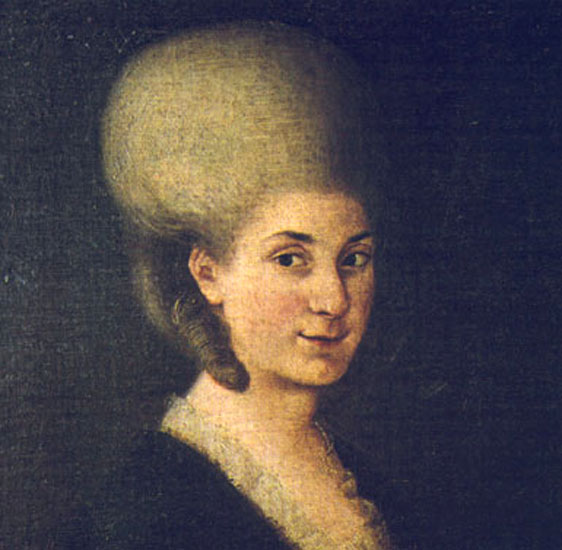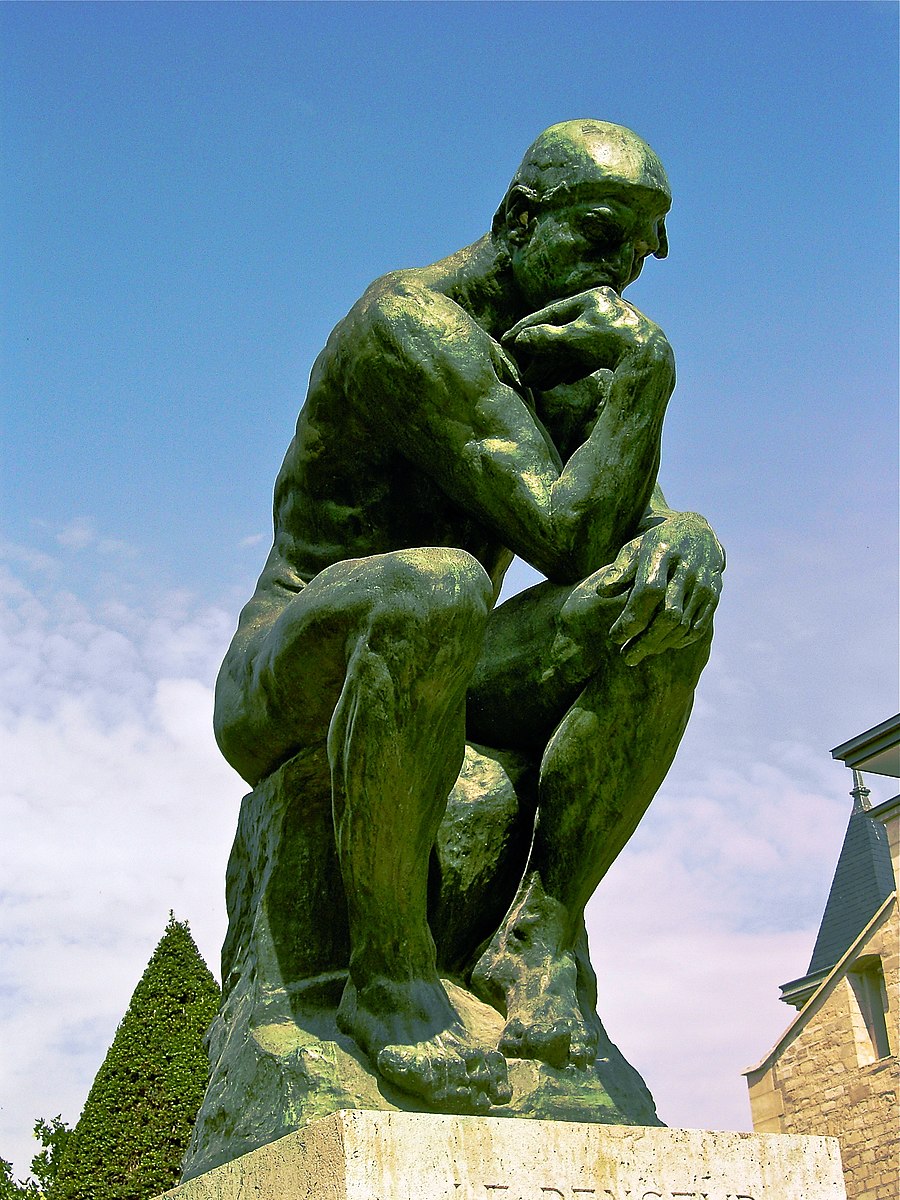Trota of Salerno was a 12th century Italian medical practitioner and writer. She was famous in her own time, but her work was forgotten until the late 20th century. Her treatise On Treatments for Women was incorporated into the Trotula, which was a compendium of three different works about women’s medicine by three different writers. There are only a handful of copies of her authentic work. No other information about her life has survived, but we know she wrote the Practica secundum Trotam ('Practical Medicine According to Trota'), which covers a variety of different medical topics, from infertility and menstrual disorders to snakebite and cosmetics.
Excerpt of a miniature portrait of Aemilia Lanyer
Painted by Nicholas Hilliard (d. 1619) (Source Wikimedia)
Maria Anna Mozart was the sister of Wolfgang Amadeus Mozart. When she was seven years old, her father Leopold started teaching her to play the harpsichord. He took her and Wolfgang to cities like Vienna and Paris where they performed at court. In the early days, Maria sometimes received top billing, and she was noted as an excellent harpsichord player and forte pianist. But when she grew older and was of marriageable age, she was excluded from these performances. There is evidence that Marianne wrote musical compositions, as there are letters from Wolfgang praising her work, but none has survived.

Maria Anna Mozart, Anonymous, https://en.wikipedia.org/wiki/Maria_Anna_Mozart
Mary Elizabeth Bowser was an an American freed slave who worked as a Union spy during he Civil War. Bowser was highly intelligent and had a photographic memory, and posed as 'Ellen Bond', a slow-thinking servant. She worked at functions held by Varina Davis, the wife of the Confederate President, Jefferson Davis. Bowser eventually worked in the Davis household. She memorised all the paperwork she saw and the conversations she overheard, relaying this back to the Union side. Bowser was eventually found out, but before she fled she attempted to burn down the Confederate White House. After the war ended, the federal government destroyed any records of evidence of espionage in order to protect those involved. Bowser did keep a journal about her life, but was lost in 1952. There is no record of her later life, or her death.
Irena Sendler was a Polish nurse and social worker who served in the Polish Underground during World War II. As head of the children's section of the resistance organisation Zegota in German occupied Warsaw, she helped smuggle some 2,500 Jewish children out of the Warsaw Ghetto, providing them with false identity documents and housing outside the Ghetto. She was eventually caught by the Nazis and sentenced to death, but managed to escape execution and survive the war. In 1965 she was recognised by the State of Israel as Righteous among Nations and honoured by the Polish government for her humanitarian work.

Irena Sendler, 1942, Wikimedia commons. https://commons.wikimedia.org/wiki/Category:Irena_Sendlerowa.











